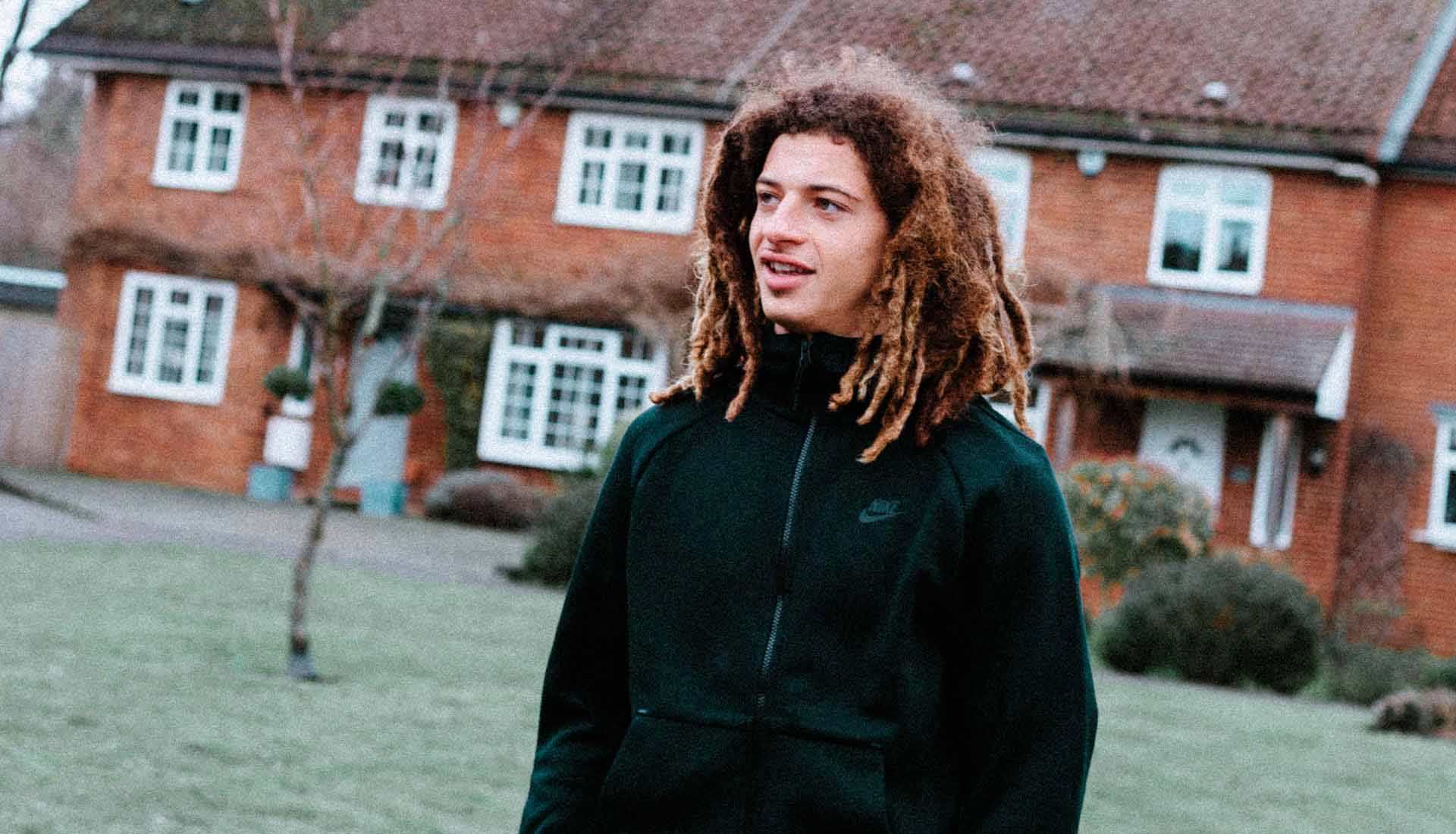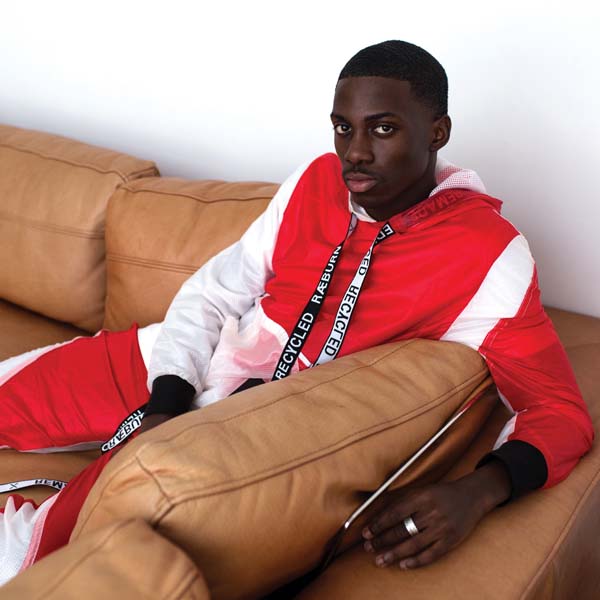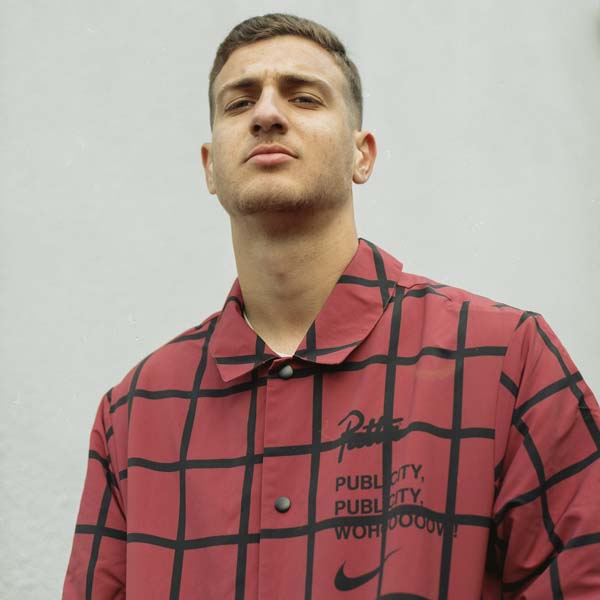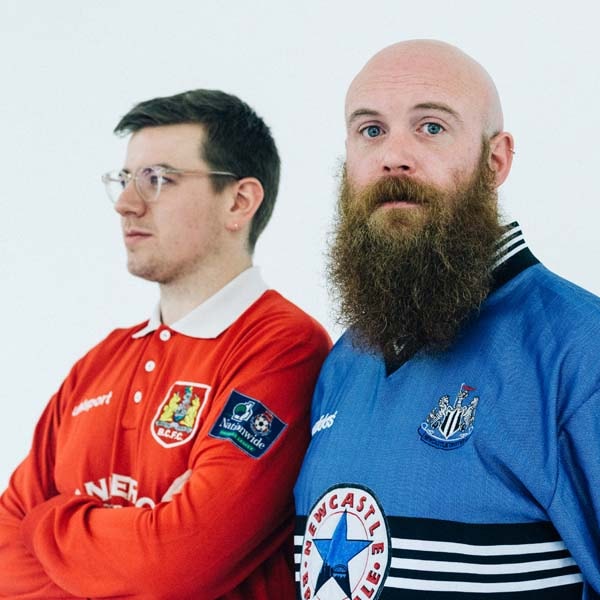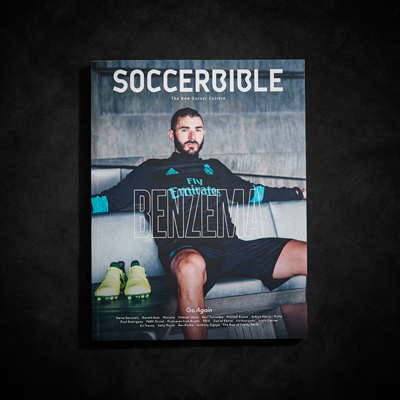From Exeter to Chelsea via Wales with a little bit of Ghana sprinkled in for good measure. It’s fair to say that at 18 years of age, Ethan Ampadu’s footballing journey so far has been anything but standard, as we found out when we caught up with him for SoccerBible Magazine issue 12 'Coming Thru'.
Swapping the South West for London in 2017 at the age of 16, the former Grecian etched himself into the Chelsea record books two months later as the first player born after the year 2000 to appear for the first team. But the young Wales international is under no illusions that he’s made it; on the contrary, this level-headed teenager with the world at his feet knows that his journey has only just begun.
Let’s go back to Exeter. How important was it for you to cut your teeth in an environment like that?
It was different, but – I don’t want to say it was natural, because as a fifteen-year-old I was very young – but I think the way they helped me into the team and made me feel welcome in the team, that way it felt natural. I always used to play in higher age groups, I was always with older people, so for my age I felt quite mature anyway, and I felt like that helped as well. I had good advice from people too.
When you’re at that level, results are almost vital to the existence of the club, not just for the three points. Did you feel that when you were playing?
Well, at that level you’re playing for people’s wages, for their families and to help them in their lives, so it was really different. Even if it wasn’t a win, if it was an away draw for example, an away draw sometimes felt like a win. Because you’re away from home, it’s tough, but you picked up points, which is always a momentum thing as well, so sometimes they’d be celebrated. You feel like it’s a win if it’s a tough one. So it definitely helped me to learn that side of the game and how important it was to win. Obviously I like winning anyway and I always want to win, but when you see that, it gives you the aspirations to want to win every single game, for yourself, but for your teammates and the club as well.
It’s a different kind of graft, perhaps?
Yeah, it’s humbling, it’s different. It teaches you to remember where you’ve started, so when you come to the nice facilities – well nicer facilities, because I’m not saying that facilities were bad, they were good – but when you come to nicer facilities that have more equipment, you remember where you started and all the hard work you’ve put in. It just shows that not everywhere is the same and everyone starts somewhere. You have to graft and you have to work to get where you want to be.
Going from Exeter to training at Cobham every day, has it been hard to make that adjustment?
Yeah, a little bit, but it’s weird because I never really felt like that. I’ve never tried to think about what it is, I’ve just tried to continue doing the same things, like having the same routine before training. Whether or not I use different equipment because I have that available to me now, I try to keep things the same and try not to think about where I am, because I’ve still got a long way to go and I’ve only just started the journey. I still remember where I started and I still try hard. It does take some adjusting because you have more physios or more members of staff to do stuff for you, so it’s different in that way too.
Do your more humble beginnings help keep you in check?
Definitely. That’s why I like to try and stay humble because I know where I started and not everywhere feels like this. Some people aren’t fortunate enough to have facilities like at Chelsea, so yeah, I definitely remember where I started and I think it’s helped me to be who I am now.
Your dad, Kwame, is a former player, and he’s still very involved in the game as a coach. How key has he been to your development?
He’s probably the reason why I wanted to be footballer. I was young so I don’t remember actually watching him, but as a kid I must’ve watched him. My mum told me a funny story: you know how players drink a drink and then spit it out? I used to watch my dad, and he did that in a game, so apparently – obviously my mum’s told me this – I did that when I was a kid in the kitchen, drinking a drink, and then spitting it out on the floor. I used to just copy my dad because I looked up to him. I still look up to him. If I ever need advice now, he’s there to give it to me.
What about your mum? Sounds like she’s had a big influence on your life too.
Yeah, she’s definitely been a rock and helped me out as well. I remember she used to work nights and then she’d come back and get me on the bus to go and play the game on Saturday or Sunday morning. My mum’s helped me in different ways to my dad. My mum still gives me advice and she tells me what she thinks. It’s interesting how they’ve both helped me out, but in different ways.
Because football had always been in your life, was there ever a point that you wanted to rebel and not play football?
No, not just because of my dad, but because I love it so much. I’ve never not wanted to be involved in it. It’s always what I wanted to do, and always what I aspired to be.
Who did you support when you were growing up?
Chelsea, since I was a kid.
How did that come about?
I used to be a striker, believe it or not. I don’t score many goals now, but I liked Drogba, so I became a Chelsea fan that way.
Are there any other players who have influenced you?
When I started moving back to being a defender, obviously being a Chelsea fan I used to look up to John Terry. Now I look up to the players we’ve got here now, like Rudiger, David Luiz, Christensen, Gary Cahill, Azpilicueta, but also players that don’t play for Chelsea like Sergio Ramos. Before a game I’ll look at YouTube videos of defenders just to … not to be like them, because I want to be myself, but to pick out little things they do that can help me.
In this modern day a lot of people are just being themselves and you have that freedom to express yourself and who you are”
When Chelsea came calling, what went through your head? Any nerves?
It was exciting more than anything. I had some people saying “Look how hard it is to get into the first team”, but it’s a dream and I want to make the dream a reality. So I was excited for it. I wouldn’t say I was nervous. There are obviously going to be some nerves because you’re meeting new people and you’re coming into a new building, but when I got here I was just excited to get going.
Did you think at that point “I’ve made it”?
No, especially as I’ve got my dad who’s telling me there’s still a long way to go, but I know that as well. So I wouldn’t say I’ve made it yet. Obviously I’d like to be able to say one day that I’ve made it, but there’s a lot of hard work to come.
Did you have to graft all over again?
A little bit, because you’ve got to kick on another gear. But that started when I was young, ever since I wanted to be a footballer. Without realising, because you’re just playing for fun, all that practice you did, all that training, it helps you into this moment.
You can read the full interview with Ethan Ampadu in SoccerBible Magazine Issue 12, which you can get here.
Photography by Hannah Norton for SoccerBible.
